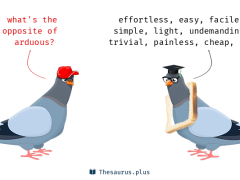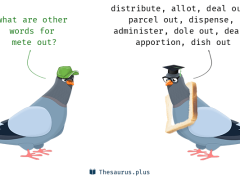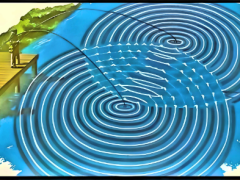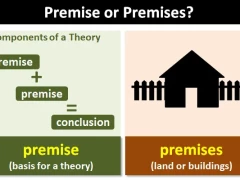justice [ˈdʒʌstis] n. 正义,公正,司法
【扩】righteousness 正义
【搭】appeal to justice 诉诸法律
【例】They have at last received compensation for their injuries, so justice has been done.
他们终于得到了对他们造成伤害的赔偿金,正义也就得到了伸张。
court [kɔːt] n. 法院
law [lɔː] n. 法律
innocence [ˈinəsəns] n. 无辜
* * *
A: He was sure of Karl's innocence.
B: But nobody knows the truth now.
A:他确信卡尔是无辜的。
B:但现在没人知道真相。
* * *
undertake [ˌʌndəˈteik] v. 承担,着手做
【扩】go about 着手做 enter on 着手做
【搭】undertake one's career 自己创业
* * *
A: I have to tell you that we're short of foreign exchange. Could we undertake compensation trade?
B: That's OK. We do often import food from abroad.
A:我不得不告诉您我们现在外汇不足。能否采用补偿贸易方式呢?
B:可以。我们常常从国外进口食品。
* * *
arduous [ˈɑːdjuəs] adj. 艰苦的,艰难的
【扩】hardie 艰苦的
* * *
A: The task is arduous; besides, there's not much time.
B: I don't think we can finish it on time.
A:任务艰巨,同时时间又很紧迫。
B:我想我们不能准时完成了。
* * *
abstract [ˈæbstrækt] adj. 抽象的
concept [ˈkɔnsept] n. 概念,观念
【派】conception 构思,设想
【扩】notion 观念,概念
【搭】concept of values 价值观
【例】The concept leads to many questions.
这一概念引出了不少问题。
mete out [ˈmiːt-aut] 给予,处置
interference [ˌintəˈfiərəns] n. 干涉
【扩】intervention 介入,干预
【例】He will not brook any interference.
他不会容忍他人的任何干涉。
accord [əˈkɔːd] v./n. 一致
【派】accordance 和谐
【搭】accord with 与……一致或相配合 in accord with 与……一致
* * *
A: His words are in complete accord with his thoughts.
B: Then I think he is easy to get in touch with.
A:他说的话与他的思想完全一致。
B:那我想他肯定很容易相处。
* * *
premises [ˈpremisiz] n. 房屋
convert [kənˈvəːt] v. 转变,改变
【派】convertible 可转换的
【扩】transform 转变
【搭】convert into 转换成
【例】The room has been converted into a library.
这个房间被改成了书房。
disused [disˈjuːzd] adj. 不再用的,废弃的
【扩】deserted 废弃的
【例】There are five kittens living in that disused car.
有五只猫住在那辆废弃的汽车里。
fireplace [ˈfaiəpleis] n. 壁炉
muffle [ˈmʌfəl] v. 捂住,压抑
【派】muffler 围巾
* * *
A: It's too noisy here. I can't stand it.
B: Put your hands over your ears to muffle them.
A:这儿太吵了,我受不了了。
B:把手放在耳朵上,把耳朵捂住。
* * *
chip [tʃip] v. 砍,削,凿,破碎
blacken [ˈblækən] v. 使变黑
emerge [iˈməːdʒ] v. (从某处)出现
【派】emergent 出现的
【扩】appear 出现
【搭】emerge from 从……出现
noun [抽象名词]公平,正义;公道,合理;司法,法律制裁;<美>法官 - He has a good overall sense of justice and fairness.
noun [具体名词]法院,法庭;球场;王宫,宫廷;朝臣;全体审判人员;庭院,院子;董事(会),理事(会);(用于大型宅第和公寓街区的名称中)宅第,公寓大楼;(用于大型宅第和公寓街区的名称中)宅第,公寓大楼 - You can refer to the people in a court, especially the judge, jury, or magistrates, as a court. (
verb [vi. 不及物动词]奉承,讨好;设法取得,追求;招致,引起(不愉快的事);谈恋爱,求爱 - If you court something such as publicity or popularity, you try to attract it.
noun [抽象名词]法律(体系);法令,法规;规律,法则,定律;法学,法律学;司法界,律师业;(道德或宗教上的)准则,守则;警方,警察 - Law is used to refer to a particular branch of the law, such as criminal law or business law. (
verb [vt. 及物动词]起诉,控告 - According to law, a doctor must be present at the ringside.
noun [抽象名词]天真,单纯;清白,无罪(guilt or innocence) - If someone proves their innocence, they prove that they are not guilty of a crime.
verb [vt. 及物动词]承担,从事;承诺,答应;<英>在内侧行驶时赶上并超越(另一辆车) - If you undertake to do something, you promise that you will do it.
adjective [原级]艰辛的,困难的 - The work was arduous.
adjective [原级]抽象的(Beauty itself is abstract),纯概念的;(艺术)抽象派的;理论上的,不切实际的 - In grammar, an abstract noun refers to a quality or idea rather than to a physical object.
noun [抽象名词]摘要,梗概;抽象画,抽象派艺术作品;抽象的概念 - An abstract is an abstract work of art.
verb [vt. 及物动词]抽象化,从理论上(或孤立地)考虑;提取,使分离;写…的摘要;偷走,窃取;退出 - In about 1930, Calder turned from realistic wire figures to abstract ones.
noun [抽象名词]概念,观念 - She added that the concept of arranged marriages is misunderstood in the west.
adjective [原级](围绕)某主题的;为表达一种想法而创造的 - Ten years on, the original concept was wearing well.
verb [vt. 及物动词]<非正式>想象,设想 - Extinction is a difficult concept to grasp.
verb [vt. 及物动词]分配、分发或给予(某物):通常用于指分配惩罚等不愉快的事物。 - His father meted out punishment with a slipper.
noun [抽象名词]干涉,干预;(收音机或电视机受到的)干扰信号;犯规阻挡;抵触,冲突 - When there is interference, a radio signal is affected by other radio waves or electrical activity so that it cannot be received properly.
noun [抽象名词]协议,条约(可数);符合,一致 - UNITA was legalized as a political party under the 1991 peace accords.
verb [vt. 及物动词]使受到,给予(某种待遇);(与…)一致,符合 - If you are accorded a particular kind of treatment, people act toward you or treat you in that way.
noun [具体名词](企业的)房屋建筑及附属场地,营业场所(premise 的复数) - There is a kitchen on the premises.
verb [vt. 及物动词]以…为基础,以…为前提;预先提出,事先提到;<古>声明,说明(premise 的第三人称单数) - He was asked to leave the premises immediately.
verb [vt. 及物动词](使)转变,(使)转换;(使)改变信仰(She converted to Catholicism.),(使)皈依;(达阵后)得附加分;使…迷上,使…热衷于 - If someone converts a room or building, they alter it in order to use it for a different purpose.
noun [抽象名词]皈依宗教者,改变信仰者;刚迷上…的人,最近开始热衷于…的人 - A convert is someone who has changed their religious or political beliefs.
adjective [原级]废弃不用的 - Maybe this is a disused word.
verb [vt. 及物动词]废弃(disuse 的过去分词) - On that disused and forgotten road
noun [专属名词]壁炉;(作装饰用的)壁炉架 - In the evenings, we gathered around the fireplace and talked in hushed whispers.
verb [vt. 及物动词]蒙住;裹住;抑制;发低沉的声音 - to wrap up (the head) in a scarf, cloak, etc, esp for warmth
noun [抽象名词]低沉的声音;消声器;包裹物(如头巾,围巾等);唇鼻部 - He tried to muffle the alarm clock by putting it under his pillow.
noun [专属名词]炸薯条,炸薯片;芯片;碎块,碎屑;缺口,豁口;筹码;撮球,切球;木条 - A chip in something such as a piece of china or furniture is where a small piece has been broken off it.
verb [vt. 及物动词]打破,弄缺;(尤指用工具)削下,凿下;切成细条;撮球,挑球 - If you chip something or if it chips, a small piece is broken off it.
verb [vt. 及物动词]使变黑;诽谤,诋毁 - They're trying to blacken our name.
- The smoke has blacken the walls. 烟把墙熏黑了。
-en 后缀表示动词,译为“使……变得……”
weak adj. 虚弱的 ——> weaken v. 使……变弱,削弱复合词(由两个词组合而成一个词),如 fireman派生词(加前缀或后缀的词)如-tion —— 名词后缀; - less —— 形容词后缀
verb [vi. 不及物动词]浮现,出现;显露,知悉;恢复过来,幸存下来;形成,兴起 - If you emerge from a difficult or bad experience, you come to the end of it.


















